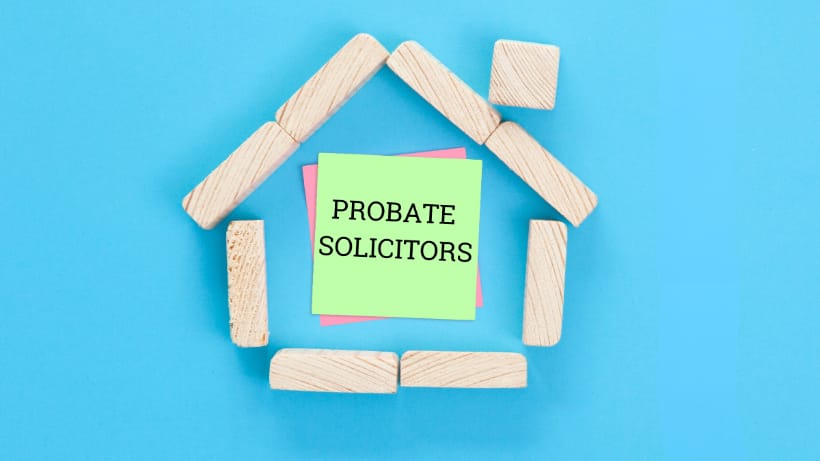When a person dies, their assets are distributed to their beneficiaries after paying off any liabilities. This is called Estate Administration, and the first stage is normally to obtain Grant of Probate from the Probate Registry and to calculate and pay any Inheritance Tax that is due. In this article we look at when it’s best to seek expert help from a probate solicitor rather than attempting the probate yourself.
Should you give Probate a go?
If the responsibility of obtaining Grant of Probate falls on you following the death of a relative or friend, it may be tempting to think that this is an easy job. After all, you can find everything you need to know with a quick Google search, can’t you?
In reality, unless the deceased’s estate is small and simple, you will find that a lot of the information available online will be inaccurate, misleading and not relevant to your situation. There are lots of factors to consider when dealing with probate and things can easily go wrong if you don’t know exactly what you are doing. You are also legally responsible for getting it right and can be found personally liable for any mistakes such as underpaid tax or assets going to the wrong beneficiaries.
Case Study – A Painful Probate
A case our firm was asked to help with illustrates very clearly why probate is not something to take on lightly. Our client (we will call him “Mr Smith” to save his blushes) was executor of his father’s Will and decided to “give it a go” with the probate. By the time he came to us for help he had found himself entangled in a long drawn-out mess which nearly proved very expensive for him!
At first glance, his father’s estate had seemed straightforward enough, with the main assets being a house and investments/shares with several financial institutions. Armed with a list of these and some account closure forms for various banks and building societies, he set about the probate process.
Issue 1 – Mistakes with Trust assets
The first problem encountered was that the estate contained several trusts which he completely missed. He assumed that all of the assets were personally owned by his father, but this was not the case.
This meant that ownership of the house didn’t automatically pass to Mr Smith as he had expected, although he didn’t know it at the time. This would have become a serious issue later, although not as serious as the second consequence – the Inheritance Tax calculation.
Issue 2 – Mistakes with calculating Inheritance Tax
Mr Smith had attempted to calculate the Inheritance Tax due on the estate based on all assets being held personally. This was wrong, and he also missed several tax reliefs and exemptions which resulted in a much higher tax calculation than was actually due.
Issue 3 – Mistakes applying for the Grant of Probate
He submitted application forms to the Probate Registry to apply for the Grant of Probate. Unfortunately, not only were the figures wrong (see issues 1 and 2), but he had also completed the forms incorrectly. The application was immediately placed on the “stop list” by the Probate Registry bringing proceedings to a grinding halt. This scuppered Mr Smith’s plans to arrange a sale of the house (not that it could have happened anyway as it was still in Trust!).
Issue 4 – Mistakes closing accounts and cashing in investments and shares
Despite the lack of a Grant of Probate, Mr Smith began contacting the various financial institutions to cash in his father’s investments and shares. He soon realised that each institution had different forms, procedures and requirements for documents to be submitted. He found that forms kept returning with requests for further information, and the whole process became very stressful, time consuming and confusing.
The answer – contacting Backhouse Solicitors!
Eventually the delays and form filling became too much for Mr Smith and he made the wise decision to ask one of our probate solicitors for help. We examined both his father’s and mother’s Wills, identified the assets and trusts, recalculated the Inheritance Tax and submitted the correct forms to the Probate Registry and HMRC.
Soon Mr Smith decided he had suffered quite enough with account closure forms and asked us to take over the whole administration of his father’s estate which we were happy to do. The bank accounts were all closed, the investments liquidated, and the house was sold the right way by the trust. Mr Smith and his siblings received what they were due from the estate in a tax efficient way and without any further delays.
When should you ask a Solicitor to help you with Probate?
This case highlights some common issues that catch out the unwary executor. If you are thinking of dealing with a Probate, or have started and encountered problems, then ask yourself these questions:
- If there are trusts in the estate, do you know how to deal with them?
- Are you confident that you know how to calculate and pay Inheritance Tax?
- Are you sure you have all the correct documents to submit to the Probate Registry?
- Are you prepared to deal with multiple financial institutions and their processes?
- Are you mentally prepared to deal with your loved one’s financial affairs?
If the answer is “No” to any of these questions, then we are here to help. To find out more about how we can support you through the process, contact us today to book a free initial consultation with one of our friendly, expert probate solicitors.
Contact the Backhouse Solicitors Team
Tel: 01245 893400
Email: info@backhouse-solicitors.co.uk
Visit: 17 Duke Street, Chelmsford, CM1 1JU
Or send us a message through the Contact Us page on this website.






